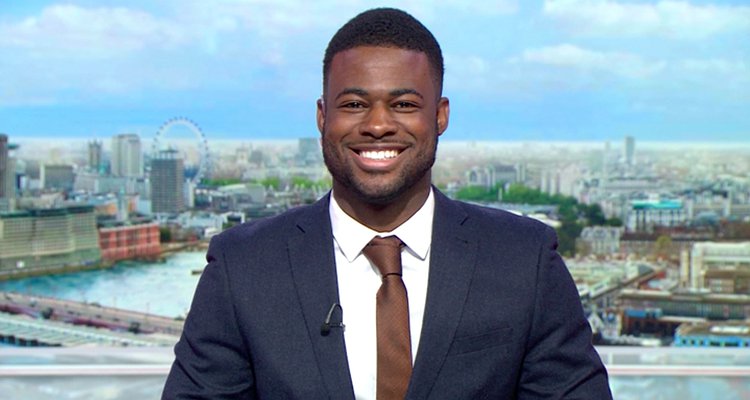BBC News’ first ever LGBT Correspondent reveals horrifying level of racist and homophobic abuse he’s received
"I knew it was going to be bad, but I didn't know it was going to be that bad."
By Will Stroude

Words: Will Stroude
BBC News’s first ever LGBT Correspondent has revealed the horrifying level of racist and homophobic abuse he’s received since being appinted to the role.
Journalist Ben Hunte, who was announced as the BBC’s first dedicated reporter for LGBTQ issues in December, says he has “never received so much abuse” as he did following the transmission of his first report last week.
The presenter and former YouTuber, who officially starts in the role in March, recorded a special report from Brighton as part of LGBT History Month which was first broadcast last Monday (18 February).
Speaking on Attitude’s ‘Pride Not Prejudice’ panel on racism and the LGBT community at Student Pride in London on Saturday (23 February), Hunte shone a light on the level of the abuse he has received since because of his identity.

“In all honesty, I have never received so much abuse in my life. I knew it was going to be bad, but I didn’t know it was going to be that bad,” the former BBC Africa presenter said.
“What surprised me most was the lengths that people would go to find me. I was having email to my BBC email address; I had one email which said ‘Since when did the BBC allow negroes to present the news?'”
Hunte, who previously said he was “delighted” to be taking up the historic role, went on: “I had internal conversations with the BBC about what we’re going to do, because that story was just a fun and friendly piece about LGBT history. When I’m putting vulnerable people on the news, what are those comment sections going to look like?”
“We’re all strong people sat up here… but there are people who cannot come out in support of their own sexuality, they cannot come out in support of their own gender, so when they see these comments on BBC platforms, what does that look like?”
According to the BBC, the role of LGBT Correspondent will see Ben “report on the stories, issues and debates surrounding sexuality and gender and focus on providing insight and analysis on matters affecting the LGBT community in the UK.”
Asked how tough it might be to follow the BBC’s impartiality guidelines given his own personal connection to the community he’s reporting on: Hunte said: “It is personal, it’s very personal, and that’s why I think there’s a bigger conversation to be had with the BBC around ‘What does my role look like?’
“I think when I do actually come into the role in March I’m going to be forming it myself, and shaping it around what I think the community needs.”

He added: “My ultimate ambition for it is to put a mouthpiece to the people who need to speak the loudest – and at that the moment I think that’s the marginalised communities within the LGBT community as a whole.”
Chaired by Attitude Editor-in-Chief Cliff Joannou, Attitude and Student Pride’s ‘Pride Not Prejudice’ panel saw leading LGBTQ figures share their thoughts on tackling racism on the scene and within the wider community.
Featuring Munroe Bergdorf, Brexit whistleblower Shahmir Sanni, UK Black Pride Engagement Director Moud Goba and model Reece King, the discussion covered everything from the concept of ‘privilege’ to the recent furore surroinding Manchester pride’s decision to add black and brown stripes to the Pride flag on its official artwork.
You can watch the discussion in full below:
